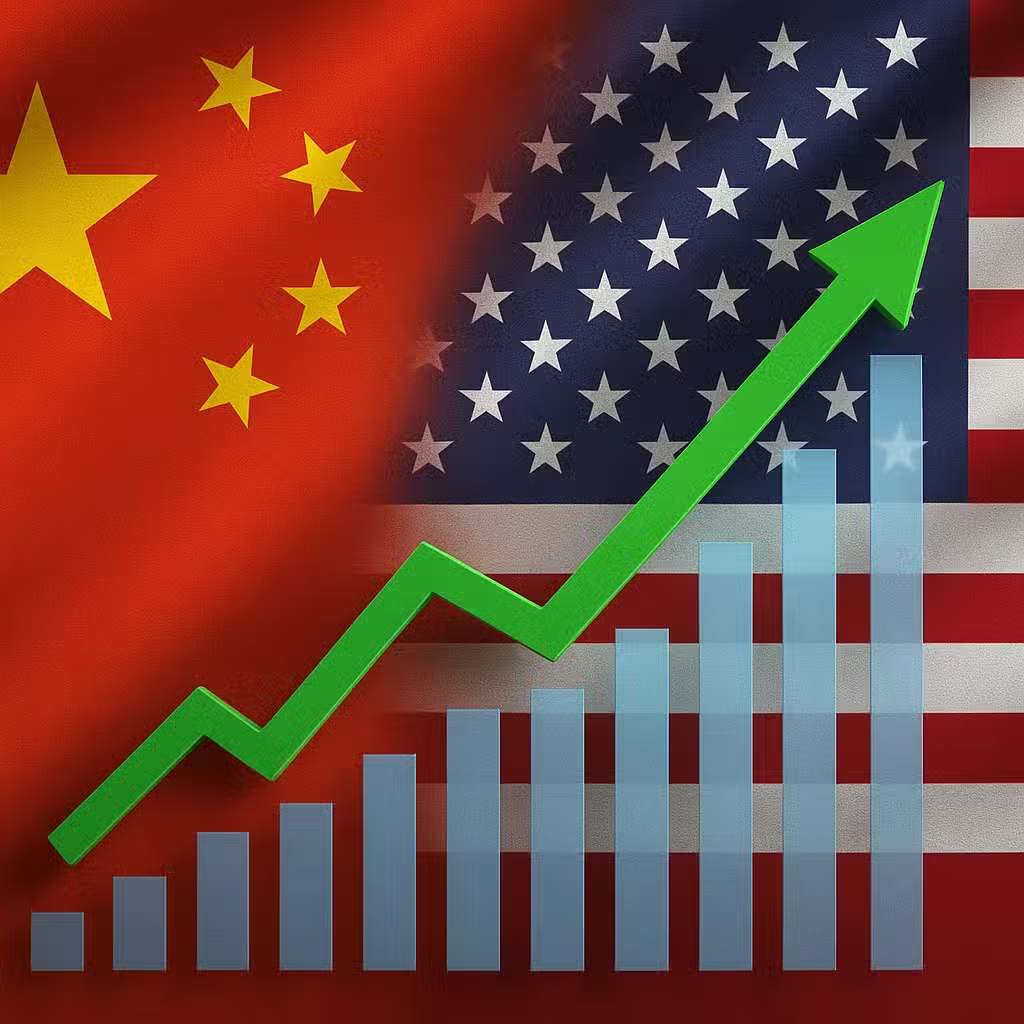China Signals Long-Term Approach to U.S. Relations, Offering Stability Prospects for Chinese Stocks
Imagine you’re deciding which team to cheer for in a big game, but both teams keep changing up their players and strategies. That’s a bit like what’s happening between the U.S. and China in the stock market right now — and it matters for anyone thinking about where to put their money.
Why This Matters for Investors
Investors are watching China closely as tensions with the U.S. rise. There’s a lot of movement in the market, especially around technology companies. Understanding these changes can help you make smarter choices for your portfolio, whether you’re just starting out or already have investments around the world.
The Bull Case: Reasons to Be Positive on Chinese Stocks
- Tech Growth: China is investing heavily in technology, especially in artificial intelligence (AI), robotics, and semiconductors. For example, after a Chinese company called DeepSeek showed off AI technology that surprised even global experts, investors started paying more attention to Chinese tech stocks.
- Policy Support: The Chinese government is planning to support tech companies even more. Leaders are meeting soon to talk about the next five years, and many expect big plans for industrial technology.
- Improving Returns: According to UBS strategist Sunil Tirumalai, Chinese stocks in the MSCI China index (outside of internet companies) have been showing better returns than Indian stocks lately. When you add China’s big internet names, the numbers look even stronger.
- Interest Rate Help: The U.S. Federal Reserve lowering interest rates helps both U.S. and Chinese stocks by making borrowing cheaper, which can boost company profits.
The Bear Case: Reasons to Be Cautious
- Market Volatility: Chinese stocks dropped recently after similar falls in the U.S. market, driven by worries about bad loans at some banks. The Shanghai composite fell about 2%, and Hong Kong’s Hang Seng Index dropped almost 2.5% in one day.
- Trade Tensions: There’s still a lot of back-and-forth between the U.S. and China on tariffs, export controls, and other trade issues. This can create uncertainty for investors.
- Profit-Taking Risk: The Hang Seng Index in Hong Kong is up over 25% this year, compared to about 12% for the S&P 500 in the U.S. Some experts, like Morgan Stanley’s Laura Wang, warn that these big gains could lead investors to sell and lock in profits, causing prices to drop.
- Correlation with U.S. Markets: Hong Kong stocks often move in the same direction as U.S. stocks, so trouble in one market can spill over to the other.
What’s Changing in China’s Tech Focus?
China’s new “AI+” strategy is about using artificial intelligence to help factories, not just create apps for people’s phones. This is a big shift from focusing on consumer tech (like shopping apps) to building technology that helps industries work smarter and faster.
According to McKinsey, China is already a leader in things like facial recognition and industrial automation — and the government’s new focus could help these areas grow even more.
Stocks to Watch
- Gigadevice: A semiconductor company based in Shanghai.
- Yonyou: An enterprise software provider, also in Shanghai.
- Inovance: A factory automation company listed in Shenzhen.
Analysts expect these companies to beat earnings expectations as China pushes forward in tech innovation.
Investor Takeaway
- Stay Diversified: Don’t put all your eggs in one basket. Consider spreading investments across different countries and sectors.
- Watch for Policy Changes: Keep an eye on Chinese government announcements, especially around tech and trade. These can move markets quickly.
- Focus on Quality: Experts suggest looking for “quality” companies — those with steady profits and strong business models, especially in times of uncertainty.
- Be Patient: The U.S.-China tech race won’t be decided overnight. If you’re investing for the long term, there may still be good opportunities in Chinese stocks, especially in tech.
- Monitor Volatility: Expect ups and downs. If markets get shaky, it doesn’t always mean you should sell right away — but it’s important to know your risk tolerance.
As always, do your own research and consider talking to a financial advisor before making big changes to your investments.
For the full original report, see CNBC







